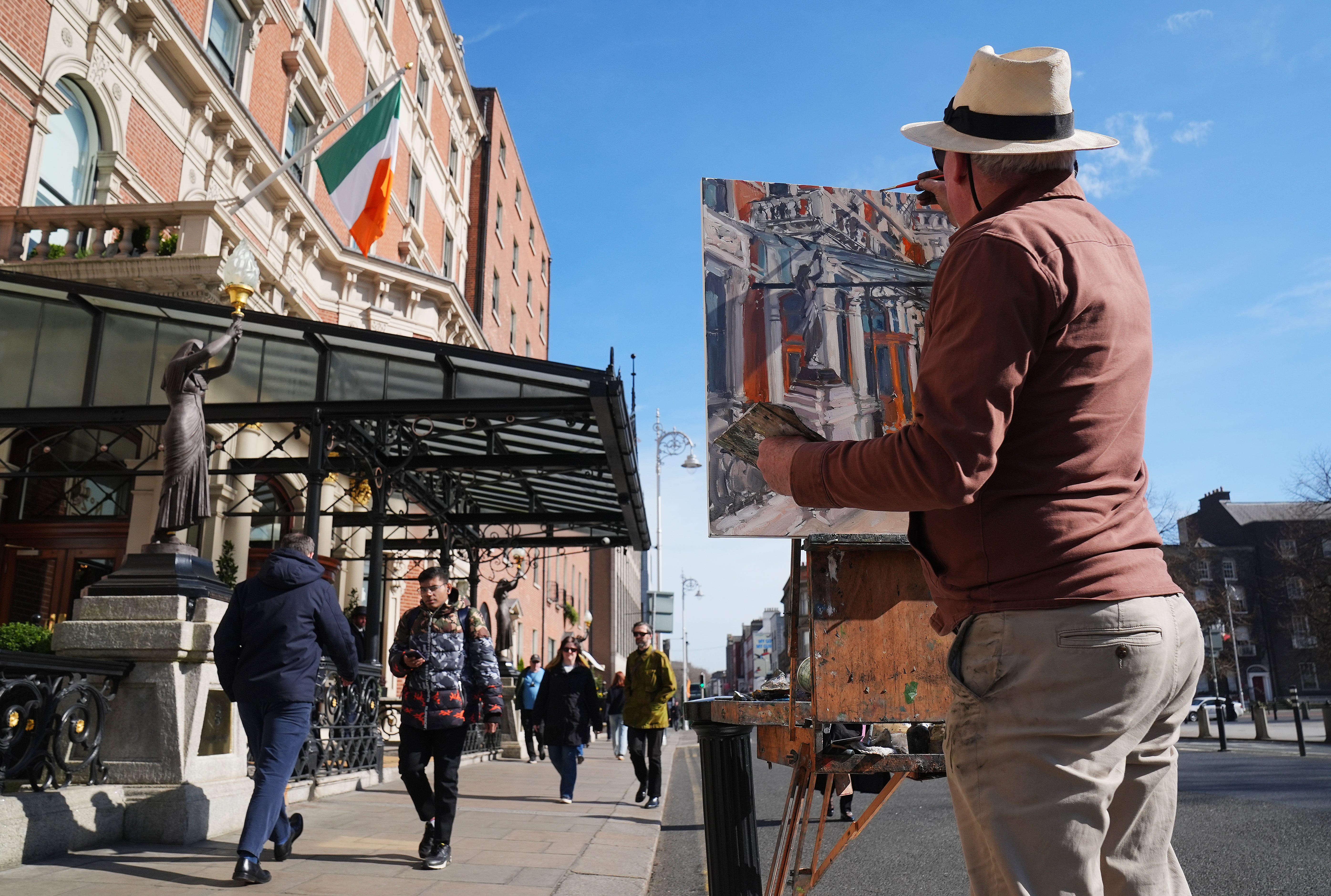
Brian Lawless – PA Images/PA Images via Getty Images
For about 2,000 artists and creative arts workers in Ireland, a weekly stipend provided through a basic income program has been a lifeline for years.
Now, it’s almost over.
The pilot program began in 2022 under Catherine Martin, Ireland’s former minister for tourism and culture. Martin allocated about $28 million to the arts sector following the COVID-19 pandemic.
Participants were randomly chosen and given an unconditional stipend of €325, or about $370, weekly for three years. During that time, participants met periodically via Zoom to discuss how the additional income had affected their livelihoods, careers, and ability to meet basic needs.
The final session was held this month before the program’s conclusion in August.
Artists and cultural workers who attended the session grappled with what their lives would look like after August, but they hoped government officials would extend the program.
“We need no further pilots. People need a UBI now to face and deal with the many social, economic, and ecological crises of our world,” Reinhard Huss, the organizer of UBI Lab Leeds, which sponsored the event alongside Basic Income Ireland, UBI Lab Arts, and UBI Lab Network, told Business Insider.
New developments in AI are reshaping the job market, replacing some entry-level positions. Tech industry leaders like Elon Musk and OpenAI CEO Sam Altman have said implementing a universal basic income will be essential in the near future when AI supplants jobs in most industries.
A universal basic income offers an entire population recurring, unconditional payments regardless of an individual’s socioeconomic status. Ireland’s program, like many others in the United States, is a guaranteed basic income, which targets certain segments of the population for a set period of time.
Impact of Ireland’s basic income program for artists
Jenny Dagg, a sociologist lecturing at Ireland’s Maynooth University, authored a new report that provides insights into participants’ reactions to the program. She gathered data from over 50 of the 2,000 recipients.
Although the report outlined nearly a dozen key impacts reported by program recipients, Dagg highlighted five major takeaways during the Zoom session.
Dagg said that recipients who received money from the program reported more stability and “significantly reduced” financial stress. It relieved their anxiety about fulfilling their basic needs.
Participating in the pilot program also allowed artists to re-prioritize how they spend their time and what they choose to focus on. “The opportunity to focus more on their specific creative interests opened new possibilities and career trajectories,” the report said.
Artists said the added income allowed them to spend more time “researching, experimenting, taking risks, and failing,” which has improved the quality of their work.
Artists, the report said, also felt more confident in themselves and their work during the program. “Many recipients talk of feeling empowered, of being in control of the choices within their lives, and envisioning a viable career path longer-term,” the report said.
Recipients even reported better mental health, which led to improved sleep quality and lowered stress levels.
What’s next for Ireland’s basic income program
With the end of the program fast approaching, recipients of the weekly payment are reckoning with what how their lives might change.
“Across art forms, recipients report concerns about financial stability and sustaining the momentum of their careers when, or if, the basic income scheme ends,” Dagg’s report said.
This month, Basic Income Ireland called on the government to immediately implement a universal and unconditional basic income for the country. A spokesperson for the UBI Lab Network said the pilot program’s success shows that basic income is a viable option. The campaign group shared a proposal for introducing a universal basic income to Ireland.
“As the pilot shows, basic income works and people need a UBI now to face and deal with the many social, economic, and ecological crises of our world. The Network will continue to help demonstrate basic income within communities and show how it is a sustainable policy,” the statement said.
Patrick O’Donovan, Ireland’s minister for arts and culture, said he would evaluate the data collected throughout the pilot program and create proposals for the government regarding the next steps.
“I am heartened by the responses of the Basic Income recipients in this paper,” O’Donovan said in the May report. “This research will add to the evaluation being conducted by my department, which to date clearly shows that the Basic Income Pilot has been an effective support for the artists in receipt of it.”
The post Artists who got almost $1,500 a month under a basic income pilot say their work improved appeared first on Business Insider.




